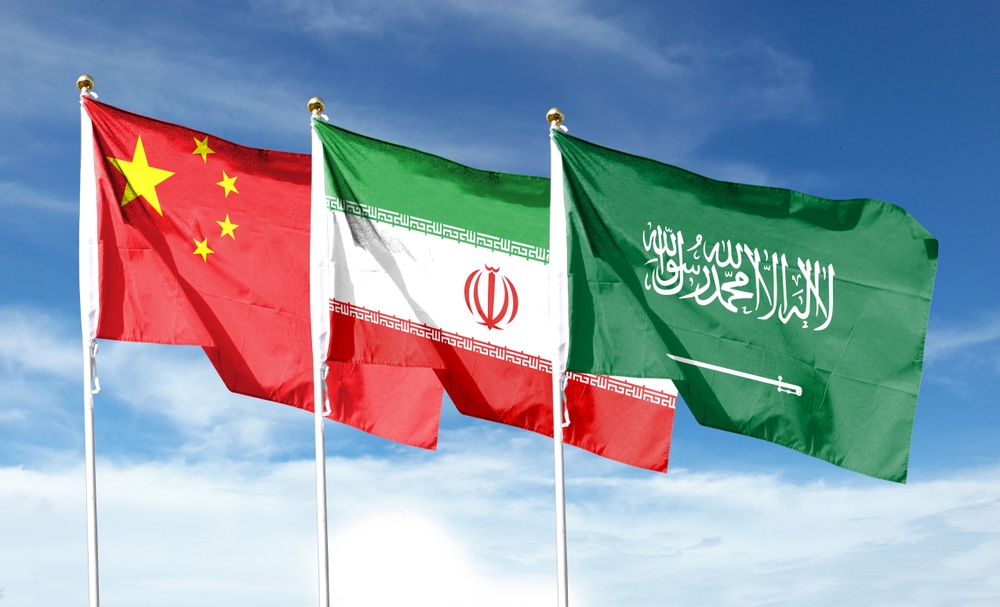Turkey was one of the first countries to welcome the Saudi-Iranian agreement, considering that the deal was in line with rapprochement and normalization that has prevailed in the Middle East for some time. This is confirmed by the statement made by the Turkish Foreign Affairs Ministry asserting that, “progress in the relations of the two countries would make important contributions to the security, stability and prosperity of our region.”
Supporting the deal could help Turkey move closer to Saudi Arabia, while allowing interests to develop with Iran. Turkey’s welcome of the agreement appears to be in the context of reducing tensions in the region, which has become a key objective after Turkey has moved to better relations with countries of the region. This is demonstrated by the normalization of relations with the UAE and Saudi Arabia, as well as the step forward in addressing tensions with Cairo. Turkey seemed to recognize that reducing tensions with states in the region protects Turkish interests, and was therefore quick to welcome and announce support for the Saudi-Iranian agreement.
Multiple considerations
The Saudi-Iranian agreement and rapprochement between the two countries presents the following opportunities for Turkey:
- Starting anew: Ankara’s support for Saudi-Iranian rapprochement can be understood among recent shifts in Turkey’s relationship with states in the region. Turkey’s orientation towards forging new paths is apparent, starting rapprochement with Saudi Arabia, addressing contentious issues with Iran, and investing in relations with the Syrian regime to drive normalization between Ankara and Damascus. On a related note, since the earthquake on 6 February, Ankara has intensified its efforts to consolidate stability, as it harnesses financial resources and external support towards reconstruction in areas stricken by the earthquake in southern Turkey, estimated to cost about USD100 billion. In Turkey’s view, therefore, nullifying conflict in the region and resolving contentions over influence, allow it to manage reconstruction without being preoccupied with regional rivalries.
- Alleviating Western pressures on the region: Saudi-Iranian rapprochement can strengthen regional alignment in the face of Western pressures. Several divisive issues exist between Washington on the one hand, and Turkey, Saudi Arabia and Iran on the other. Ankara therefore believes that reconciling Saudi-Iranian relations may provide leverage to neutralize Western pressures, such as the EU’s refusal to update the customs union agreement signed with Turkey in 1995 that entered into force in 1996. The US, for its part, also refuses to grant Turkey the advanced model of F16 aircrafts, as well as mounting Western criticism of Ankara for its refusal to join sanctions imposed on Russia over its war in Ukraine. Turkey’s regional policies and relations with Russia have, over the past years, strained its relations with Western powers, culminating in calls for Turkey’s expulsion from NATO.
In this context, Turkey’s support of Saudi-Iranian rapprochement, and alignment with Chinese policy, will alleviate Western pressure, or at least encourage a change in the West’s approach to Turkey. As Turkey capitalizes on Saudi-Iranian normalization, increasing Western concerns appear to have contributed to a pivot in Washington’s policy, as evidenced by Turkish Defense Minister Hulusi Akar statement on March 12 asserting that talks with the Pentagon on F16 fighters had reached a “positive point.”
- Ensuring that oil needs are met: Turkey’s welcome of Saudi-Iranian normalization is inseparable from its desire to enhance cooperation in energy between the two countries. Cooperation will serve to transform Turkey into an important energy hub, transporting oil from Iran and Saudi Arabia to other countries. It also ensures that Turkey’s energy needs are met at competitive prices over longer supply periods. Indeed, Turkey has feared supply disruptions in Russian gas due to escalating Western sanctions on the Russian oil sector, in addition to the possible targeting of the Turk Stream and Blue Stream pipelines, as was the case last September when the Nord Stream line was hit. Turkey is therefore acutely aware that improvements in Turkish-Saudi relations that reduce tensions with Riyadh, as well as the expansion common grounds with Iran regarding the blockade of Kurdish influence and protests on Iranian streets, allows Turkey to adopt a bipedal approach to its energy outlook.
- Protection of Turkey’s economic interests: Turkey’s welcome of the Saudi-Iranian agreement is partly due to Ankara’s desire to protect its economic benefits in the two countries. Ankara is aware that normalization between Riyadh and Tehran may be reflected in increased trade between them, which has reached about USD15 million according to the Iranian Customs Authority, and is expected to surge over the next few months.
Turkey, currently in economic crisis, recognizes its need to maintain Saudi support for the Turkish economy, as evident in the announcement by the Saudi Development Fund on March 6, that it had signed an agreement with Ankara to deposit USD5 billion in Turkey’s central bank. Ankara also understands the need for Saudi investments at this time to ease its economic hardship, making it important for Turkey to support Saudi policy towards Tehran.
In parallel, the Iranian market offers an important window of opportunity for Turkish exports. The volume of trade between Turkey and Iran rose to nearly USD6.4 billion by the end of 2022, not to mention that Western sanctions on Iran have pushed many Iranian companies to move their capital and relocate their factories to Turkey. These developments therefore, make it important for Turkey to also support Iran’s policy towards reducing tensions with Saudi Arabia.
Negative repercussions
In conclusion, Turkey’s welcome of Saudi-Iranian rapprochement, is related to Iran’s need to secure political and economic interests on the one hand, and neutralizing Western pressures on the other. However, Turkey harbors discreet concerns that this rapprochement may not mature, or enter into force on the ground. Shortfalls in the Saudi-Iranian deal could exacerbate regional tensions and bear negative repercussions on Turkey, which has been engrossed in its internal affairs since the 6 February earthquake, in order to fund reconstruction and prepare for the upcoming elections in May.


